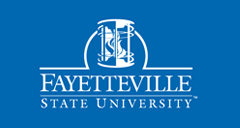Abstract
The research adopted a qualitative case study research design and engaged stakeholders from Senior High Schools (SHS) across Ghana. Fifty-six participants from five selected schools were purposefully sampled to represent diverse perspectives, including administrators, teachers, parents, and community members. The data collection methods involved semi-structured interviews, focus group discussions, and key informant interviews to elicit comprehensive insights. Thematic analysis was employed to discern recurring patterns and themes within the data, facilitating a comprehensive exploration of infrastructural deficits in mission schools. Moreover, stringent measures were implemented to ensure the reliability and validity of the findings, including inter-coder reliability checks, member validation, and ethical safeguards.
The study unveiled significant deficiencies in the infrastructure of mission schools, with participants highlighting inadequacies such as insufficient classrooms, libraries, labs, and sanitary facilities. Characterizing certain buildings as "deathtraps" revealed the gravity of the situation, exacerbated by neglect and delayed renovations. Inadequate funding emerged as a primary impediment to infrastructural improvements, compounded by educational policy and curriculum shifts. Participants emphasized that crucial strategies for addressing the infrastructural deficits in mission schools include renovating or constructing facilities, diversifying funding sources, cultivating a high-maintenance culture, and engaging stakeholders.
The outcomes of this study hold significant implications for policymakers, educators, and stakeholders involved in Ghana's education sector. By gaining insights into stakeholders' perspectives and identifying actionable strategies, interventions can be devised to enrich the learning environment, enhance educational outcomes, and contribute to attaining Sustainable Development Goal 4. Mobilizing resources, cultivating a maintenance culture, and targeted interventions are imperative to address infrastructural challenges and ensure equitable access to quality education in mission schools.
Recommended Citation
Ayembilla, Daniel and Ayanwale, Musa Adekunle
(2024)
"Tackling Infrastructural Deficit in Mission Schools: Stakeholder Perspectives,"
Journal of Research Initiatives: Vol. 8:
Iss.
4, Article 9.
Available at:
https://digitalcommons.uncfsu.edu/jri/vol8/iss4/9
Included in
Educational Leadership Commons, Elementary and Middle and Secondary Education Administration Commons, Elementary Education and Teaching Commons, Higher Education Commons, Higher Education Administration Commons, International and Comparative Education Commons, Junior High, Intermediate, Middle School Education and Teaching Commons, Other Educational Administration and Supervision Commons
